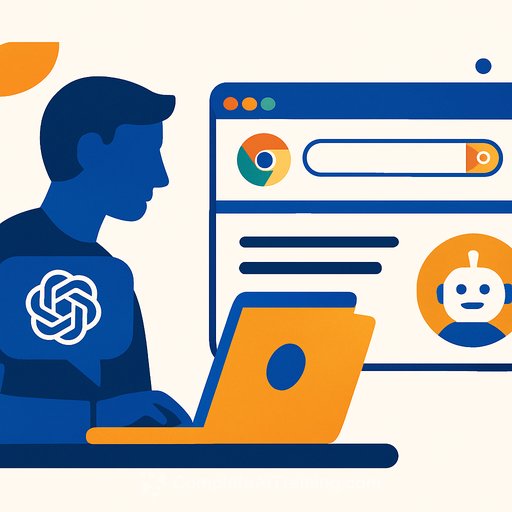OpenAI to Launch AI-Powered Chromium Browser With Built-In Assistant to Challenge Google Chrome
OpenAI is set to launch a Chromium-based browser with a built-in AI assistant that automates tasks like booking and form filling. This move challenges Google’s search and advertising dominance.

OpenAI Prepares to Launch Chromium-Based Browser with Built-In AI Agent
OpenAI is reportedly close to unveiling a new web browser that could challenge Google’s dominance in the browser market. The upcoming browser, expected to launch in the coming weeks, is built on Chromium — the open-source foundation behind Chrome and many other browsers. What sets it apart is deep integration with artificial intelligence, changing how users interact with the web.
This browser won’t just be a traditional tool for browsing. Instead, it features a chat-style AI assistant capable of handling complex tasks like summarizing web pages, autofilling forms, booking travel, and completing purchases. Users can delegate these actions without clicking through multiple sites, streamlining online activities.
AI Agent “Operator” Powers Multistep Task Automation
One of the standout features is the possible inclusion of OpenAI’s Operator agent, an AI designed to carry out multistep tasks. Introduced earlier this year, Operator can manage responsibilities such as scheduling appointments or ordering food on behalf of the user. This elevates the browser from a simple gateway to a proactive assistant embedded in the browsing experience.
Data Access and Market Implications
Because the browser would provide OpenAI with direct access to user data, it could use that information to improve its AI models. This raises interesting questions about privacy and data control, especially since Google’s Chrome plays a major role in its ad business by leveraging user data.
Launching an AI-powered browser could position OpenAI as a competitor to Google not just in search but also in advertising and data collection. It also signals a shift in how users might engage with the web, moving away from traditional search queries toward task-driven AI interactions.
Broader Ambitions: A One-Stop AI Operating System
OpenAI’s move into the browser space appears to be part of a larger plan to control the front-end interface people use daily. With ChatGPT already popular as a standalone app, and recent features like memory and plug-in ecosystems, OpenAI seems focused on creating a seamless AI environment.
By combining browsing, AI assistance, and task automation in one platform, OpenAI could offer a unified experience for managing digital tasks. This could appeal especially to IT professionals and developers looking for efficient ways to handle online workflows.
Competition Heats Up: Perplexity AI’s Comet Browser
OpenAI’s browser announcement comes shortly after Perplexity AI introduced its own AI-driven browser named Comet. Similar to OpenAI’s approach, Comet automates tasks and uses AI to improve search and navigation, highlighting growing interest in AI-powered browsing solutions.
- Built on Chromium with integrated AI assistant
- Includes OpenAI’s Operator agent for multistep task automation
- Direct access to user data to refine AI models
- Challenges Google’s dominance in search, ads, and data collection
- Signals a shift toward task-based AI interactions replacing traditional search
For professionals interested in exploring AI tools and how they integrate with everyday digital workflows, this development is worth watching. To learn more about AI courses and training that cover similar technologies, visit Complete AI Training.




